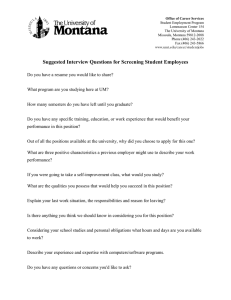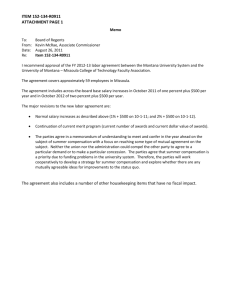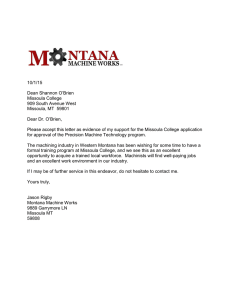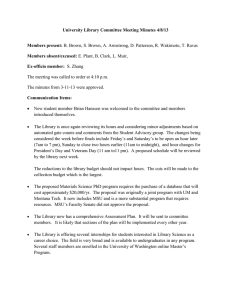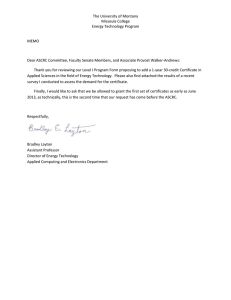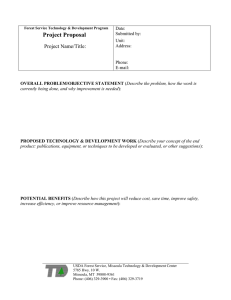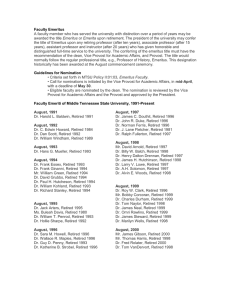Missoulian Wednesday, April 18, 2012 By Chelsi Moy
advertisement
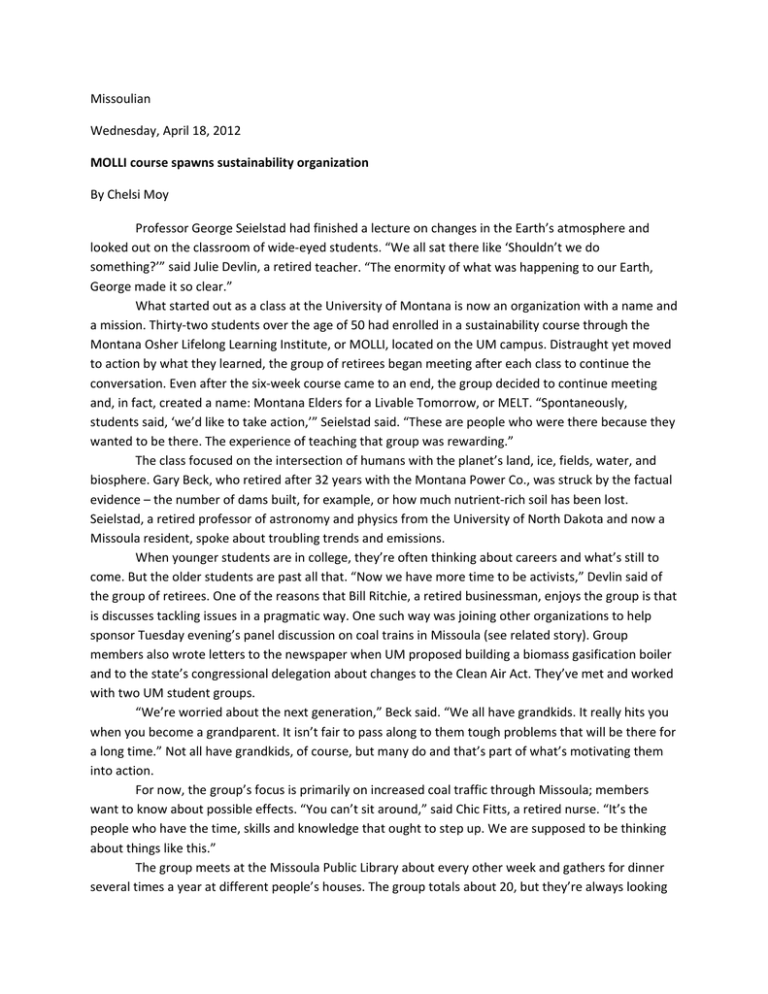
Missoulian Wednesday, April 18, 2012 MOLLI course spawns sustainability organization By Chelsi Moy Professor George Seielstad had finished a lecture on changes in the Earth’s atmosphere and looked out on the classroom of wide‐eyed students. “We all sat there like ‘Shouldn’t we do something?’” said Julie Devlin, a retired teacher. “The enormity of what was happening to our Earth, George made it so clear.” What started out as a class at the University of Montana is now an organization with a name and a mission. Thirty‐two students over the age of 50 had enrolled in a sustainability course through the Montana Osher Lifelong Learning Institute, or MOLLI, located on the UM campus. Distraught yet moved to action by what they learned, the group of retirees began meeting after each class to continue the conversation. Even after the six‐week course came to an end, the group decided to continue meeting and, in fact, created a name: Montana Elders for a Livable Tomorrow, or MELT. “Spontaneously, students said, ‘we’d like to take action,’” Seielstad said. “These are people who were there because they wanted to be there. The experience of teaching that group was rewarding.” The class focused on the intersection of humans with the planet’s land, ice, fields, water, and biosphere. Gary Beck, who retired after 32 years with the Montana Power Co., was struck by the factual evidence – the number of dams built, for example, or how much nutrient‐rich soil has been lost. Seielstad, a retired professor of astronomy and physics from the University of North Dakota and now a Missoula resident, spoke about troubling trends and emissions. When younger students are in college, they’re often thinking about careers and what’s still to come. But the older students are past all that. “Now we have more time to be activists,” Devlin said of the group of retirees. One of the reasons that Bill Ritchie, a retired businessman, enjoys the group is that is discusses tackling issues in a pragmatic way. One such way was joining other organizations to help sponsor Tuesday evening’s panel discussion on coal trains in Missoula (see related story). Group members also wrote letters to the newspaper when UM proposed building a biomass gasification boiler and to the state’s congressional delegation about changes to the Clean Air Act. They’ve met and worked with two UM student groups. “We’re worried about the next generation,” Beck said. “We all have grandkids. It really hits you when you become a grandparent. It isn’t fair to pass along to them tough problems that will be there for a long time.” Not all have grandkids, of course, but many do and that’s part of what’s motivating them into action. For now, the group’s focus is primarily on increased coal traffic through Missoula; members want to know about possible effects. “You can’t sit around,” said Chic Fitts, a retired nurse. “It’s the people who have the time, skills and knowledge that ought to step up. We are supposed to be thinking about things like this.” The group meets at the Missoula Public Library about every other week and gathers for dinner several times a year at different people’s houses. The group totals about 20, but they’re always looking for more members. The group has a tendency to laugh a lot, said Jan Hoem, a retired teacher who helped establish the group. With discussion about all these harmful and concerning things happening in the world, it’s always important to remember to laugh and enjoy each other’s company, she said. That and solving the world’s problems is what MELT is all about.
